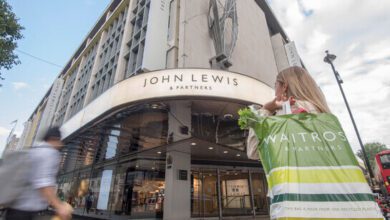Should retailers be banking on the concept store?

Register to get 1 more free article
Reveal the article below by registering for our email newsletter.
Want unlimited access? View Plans
Already have an account? Sign in
Pop-up and concept stores could be key to boosting profitability over the festive season and throughout the year ahead, allowing businesses to take advantage of growing appetite for experiential retail, particularly at key trading periods. But are these agile stores likely to stick around or is it a case of here today, gone tomorrow?
The rise of online sales has forced many retailers to rethink their business strategies and the likes of John Lewis and Waitrose, The Body Shop, and H&M have all recently made concept stores part of their retail proposition. Whilst the speed and ease of online shopping has won over most shoppers, many also value human interaction and real-life experiences that they can share with others.
Whereas online retail sales are mainly influenced by price, concept stores provide something different and appealing – drawing customers in, keeping them there. The longer they stay, the more chance they will spend money and buy products.
Successful pop-ups and concept stores provide a place for customers to meet friends, share experiences, and create memories. For businesses looking to boost their brand recognition, they also provide an opportunity for customers to engage in a more direct and memorable way.
The concept store has effectively allowed retailers to reinvent the shopping experience and reach out to more customers. More than just a shop, these novel outlets are able to entice shoppers who might otherwise not think to visit their website.
Whilst the primary aim of pop-ups and concept stores is to sell products, many double-up as cafés, offering talks, interactive features or filmic screenings. They aim to create a community atmosphere, encouraging people to spend more time in the store and offer a more relaxed and informal sales platform.
For a concept store to work well, it needs to be all about discovery and experience, which sounds straightforward, but in reality isn’t easy to achieve. The success of the concept relies on innovation and ingenuity, and much thought and capital investment are often required.
Designed to make a strong visual impact, the design of such stores can be particularly important, as it needs to stand out and create just the right branded atmosphere. Considerable staff training and a more creative use of floor space may also be required, all of which can be costly. Failing to achieve the desired result could render the concept store an expensive experiment.
They may seem like a quick and creative solution to boosting sales, but the nature of concept stores means they are unlikely to work for all retailers operating in all sectors. They can be expensive to establish and once operational, can be a huge drain on resources. Before taking a decision to launch a concept store, retailers must stay focused on their business objectives and base their decision making on firm financial metrics, such as cashflow forecasting and cost-benefit analysis.
Whilst they are unlikely to save the high street, concept stores could be retailers’ secret weapon in 2020 – adding an exciting, valued-added dimension to their proposition, and enhancing their brand in the process.
By Roberto Lobue at accountancy firm Menzies







